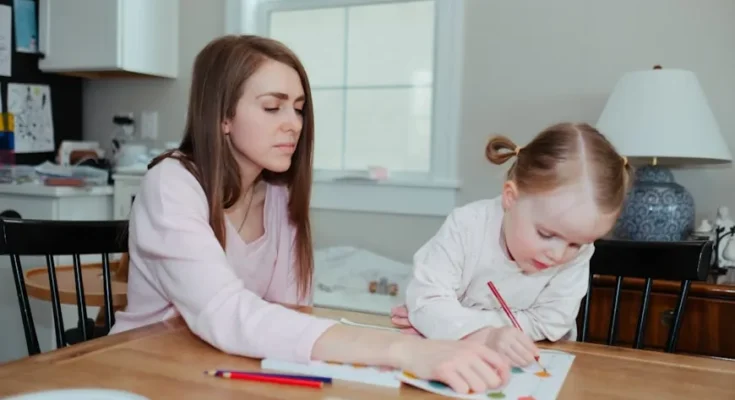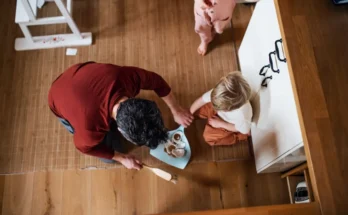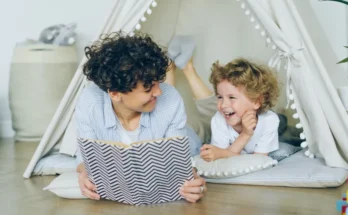The Beautiful Chaos of Parenting:
Parenting is often described as the hardest job you’ll ever love. It’s a beautiful chaos—a wild blend of sleepless nights, endless questions, heart-bursting joy, and unpredictable challenges. But beyond the diapers, tantrums, and parent-teacher meetings lies something deeper: the opportunity to shape a life, to mold a human being who is emotionally strong, morally grounded, and wildly curious about the world.
Yet in the 21st century, parenting has evolved. Gone are the one-size-fits-all approaches of previous generations. Today, parenting requires a mix of emotional intelligence, adaptability, and a deep understanding of the unique little humans we are raising.
The Shift from Authority to Connection:
-
Parenting in the Age of Emotional Intelligence
Modern parenting emphasizes connection over control. Where past generations may have leaned heavily on obedience and authority, today’s parents are encouraged to foster mutual respect and open communication. Children aren’t mini-adults to be managed—they’re individuals to be understood.
The growing awareness of emotional intelligence has changed how we discipline, guide, and support our kids. Instead of punishing a child for crying, we ask why they’re upset. Instead of demanding silence, we teach them how to express their thoughts constructively. In doing so, we’re not just raising well-behaved kids—we’re raising emotionally intelligent future adults.
-
Why Connection Trumps Perfection
Parenting perfection is a myth. Real parenting is messy, unpredictable, and constantly evolving. What matters more than always getting it right is being emotionally available. Children thrive when they feel seen, heard, and understood.
A connected parent listens more than they lecture. They validate their child’s feelings, even when they don’t agree. This connection becomes the foundation for trust, allowing children to come to us when life gets complicated, rather than turning away.
The Power of Presence Over Presents:
-
Quality Time in a Distracted World
In our fast-paced, screen-saturated world, presence is becoming a rare commodity. Parents juggle jobs, schedules, and responsibilities, and it’s easy to mistake providing for parenting. But children don’t need more stuff—they need more of us.
Being present doesn’t mean organizing elaborate family outings or Pinterest-perfect activities. It means giving your undivided attention when they’re telling a story, playing on the floor for ten minutes without checking your phone, or simply being emotionally available when they need a hug.
-
Building Trust Brick by Brick
Trust is not built in grand gestures but in the small, consistent acts of showing up. When you listen to your child’s stories—even the long, meandering ones—you’re telling them they matter. When you acknowledge their feelings instead of dismissing them, you’re showing that their inner world is important.
This consistent emotional availability creates a safe environment, one where children learn to trust not just you, but themselves and their feelings.
The Art of Gentle Discipline:
-
Rethinking Rules and Boundaries
Discipline is often misunderstood as punishment. But true discipline is about teaching, not controlling. It’s about setting boundaries with love and guiding behavior with empathy. Children don’t misbehave because they want to frustrate us—they misbehave because they are learning how the world works, and they need our guidance to do it safely.
Gentle discipline focuses on understanding the “why” behind the behavior. Is your child tired? Overstimulated? Hungry? An empathetic approach helps you address the root issue instead of just the surface behavior.
-
Consequences with Compassion
Logical consequences are more effective than threats or punishments. If your child throws a toy, the consequence might be losing the toy for the rest of the day—not because you’re angry, but because it teaches responsibility.
When discipline is consistent, fair, and delivered with compassion, children learn self-regulation, accountability, and empathy—skills that will serve them far beyond childhood.
Embracing the Individual Child:
-
One Size Does Not Fit All
Every child is different. Even within the same household, what works for one child might completely backfire with another. Some children are naturally cautious; others leap before they look. Some need extra hugs; others need more independence.
Effective parenting means tuning in to your child’s unique temperament, learning style, and needs. It means letting go of comparisons and embracing who your child truly is—not who you imagined they would be.
-
Cultivating Strengths and Passions
When you notice and nurture what your child loves—whether it’s dinosaurs, drawing, or storytelling—you’re building their confidence and helping them discover their purpose. Celebrate effort over outcome, curiosity over correctness, and passion over perfection.
A child who feels supported in their uniqueness is more likely to grow into an adult who embraces their individuality and contributes meaningfully to the world.
The Role of Self-Awareness in Parenting:
-
Parenting the Parent First
The truth is, much of parenting is about us, not just our kids. Our triggers, our unresolved childhood wounds, our expectations—all of it shapes how we respond to our children.
Becoming a better parent often starts with self-awareness. Are you yelling because your child misbehaved, or because you’re overwhelmed? Are you imposing strict rules because of fear, or because they’re truly necessary?
When we parent from a place of calm and clarity, we create a more peaceful environment not just for our kids—but for ourselves.
-
Modeling the Behavior
Children learn far more from what we do than what we say. If we want our kids to be kind, we must model kindness. If we want them to be resilient, we must show them how to bounce back after setbacks.
Parenting is a mirror. Every interaction is an opportunity to teach by example. And while we will all make mistakes (often), owning those mistakes is just as powerful a lesson as getting it right.
Letting Go to Let Them Grow:
-
The Gift of Autonomy
As children grow, parenting becomes more about letting go than holding on. It’s about giving them the space to make mistakes, solve problems, and figure out who they are.
Helicopter parenting—hovering over every decision—might feel safe, but it stifles growth. Children need the freedom to fall and get back up, to try and fail, to dream and pursue.
-
Preparing Them for the World
The goal of parenting isn’t to protect children from every hardship. It’s to prepare them to face the world with resilience, empathy, and courage. That means letting them wrestle with challenges, navigate difficult emotions, and develop the skills to thrive independently.
Conclusion:
There is no finish line in parenting. It’s not something you check off a to-do list or master with a manual. It’s a relationship—a long, evolving dance between guidance and freedom, love and limits.
It’s okay not to have all the answers. What matters most is showing up, staying present, and parenting with intention. When we lead with love, listen with empathy, and remain open to growth, we not only raise incredible children—we become better, more whole versions of ourselves in the process.
In the end, parenting is not just about raising a child. It’s about raising ourselves alongside them.




